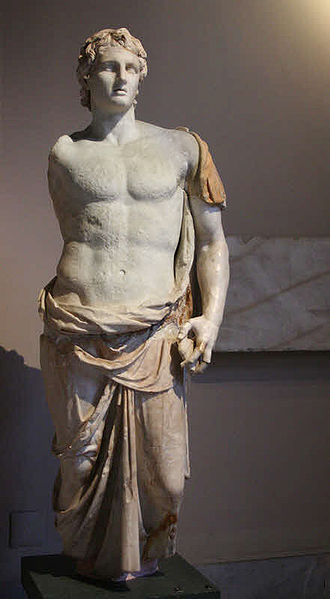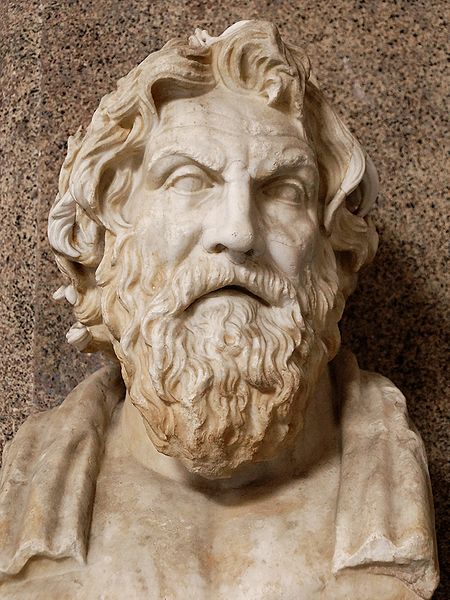|
HELLENISTIC PERIOD

In the Hellenic period, philosophers like Socrates,
Plato, and Aristotle thought the good-life could
only be obtained through an idealized state, and
philosophers and citizens should strive to improve
the state.
This sentiment ended with the death of Aristotle's
student Alexander the Great. The Romans conquered
the Hellenistic states; Greek culture merged with
other cultures, and the Greeks no longer felt they
were in control of the destiny.
This is the beginning of the Hellenistic period.
Philosophers abandoned the idea that the good-life
could be obtained by participation in the state. In
their pursuit for values they turned their
attentions inward. We will see later that a similar
thing happened when René Descartes turned his
attentions inward in pursuit of knowledge.
CYNICISM
ANTISTHENES

(445-365 BCE)
LIFE
Antisthenes studied rhetoric with
the sophist Gorgias, and dialectics with Socrates.
He was present when Socrates died. Antisthenes was
the founder of Cynic philosophy - which influenced
Christianity and Stoicism.
PHILOSOPHY
1. He rejected
conventions.
2. Happiness is obtained
through virtue - not pleasure.
3. Virtue is obtained by
detachment from all possessions and pleasures (Even
good ones?)
4. Organized religion is
a human fabrication.
5. Only one God exists.
6. God is unlike
anything on earth, and cannot be understood by any
representation.
DIOGENES

(412-323 BCE)
(He was born in Sinop or modern-day Turkey)
1. He was a student of Antisthenes.
2. His student was Crates.
3. Diogenes slept in an urn in the
marketplace
4. His only possessions were the cloths
he was wearing and a cup. When he saw a boy drinking
from his hands, he threw his cup away.
5. He rejected established customs and
values.
6. He rejected pleasure as the good or
end in life.
7. When Alexander the Great granted him
any wish, he replied; stand out of my sunlight.
8. None of his writings survived.
|
